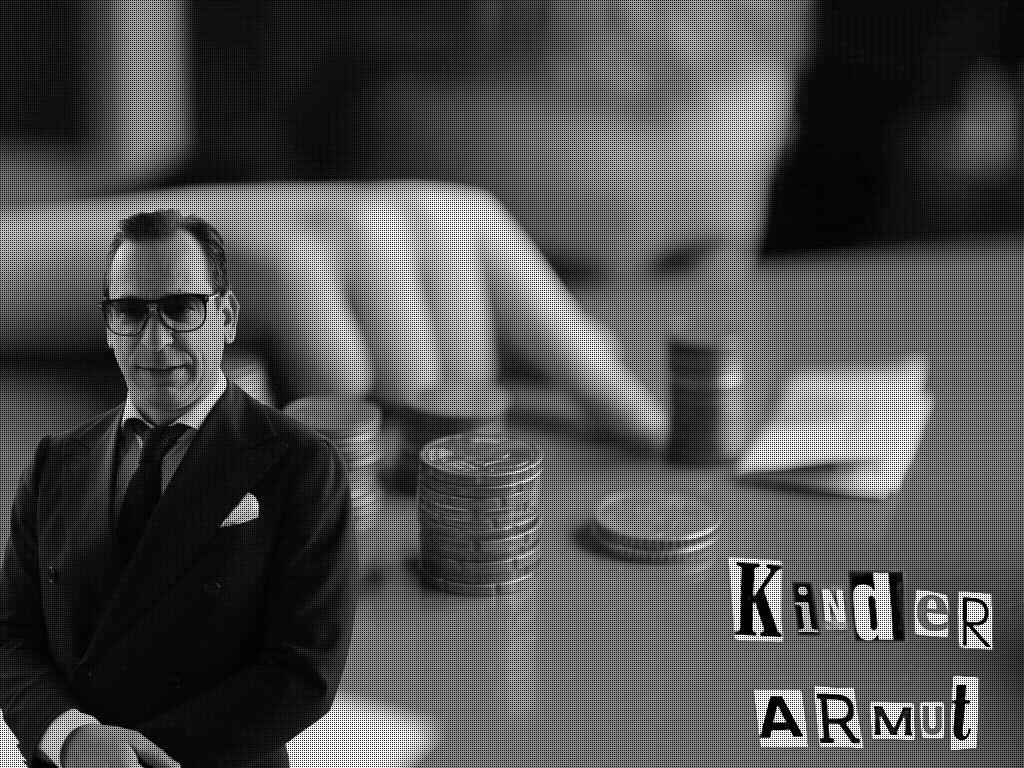Child poverty in wealthy Germany, one of the most successful industrial nations on our planet, is a mass phenomenon. The current coronavirus crisis makes this particularly acute. According to statistics, 1.7 million children in Germany live in poverty. The ongoing COVID-19 pandemic and the economic downturn and rising unemployment it has triggered will significantly exacerbate the problem in the coming years.
In this context, we have interviewed business representatives and are today interviewing Josip Heit as Chairman of the Board of Directors of the Hamburg-based GSB Gold Standard Banking Corporation AG.
Mr. Heit, how do you see child poverty in general and in relation to the coronavirus crisis in particular?
Josip Heit: “Child poverty is very closely related to social inequality, but it is not just inequality in the sense of neutral differentiation. It is important to understand that the point here is that poor children do not simply have less than their peers, but have too little to live a sufficiently good life. Growing up in poverty is unfair, painful and harmful. In a monetary society where you have to buy almost everything, poverty inevitably means having fewer things and being able to do less. So the appeasement formula that you couldn’t buy the important things in life doesn’t help at all.
Child poverty is one of the political issues that comes into focus on special days and then disappears again after a week or two – in the sense of “I’m glad we talked about it”, this cannot and must not happen, because we are all surely of the unanimous opinion that children are the future of every country! Statistics must not be concealed; I personally would like to see a more differentiated discussion on the subject of poverty, instead of just picking out one family in the media, because it serves the declining circulation of print media and sells better at the newsstand. It must be about creating access and opportunities for children from socially disadvantaged families, this includes everything possible – music, sport or attending events”.
Mr. Heit, the GSB Gold Standard Banking Corporation AG is a company with a share capital of almost 9 million Euro, do you think the economy is called upon to support the state?
Josip Heit: “Child poverty is not a disease that strikes you suddenly or a natural disaster. Child poverty is a socially generated and stabilized phenomenon – there would not have to be child poverty, at least not in the form in which it is widespread today even in a rich country such as the Federal Republic of Germany.
And yes, the economy can help the state in difficult times; we as a company donated 90,000 ninety thousand euros to social institutions right at the beginning of the coronavirus pandemic. If every company had reacted in this way, many things would certainly be easier, although one must also bear in mind that large, medium-sized and small companies contribute to the common good of our country with their taxes anyway. Personally, I would like to see the introduction of a basic provision for children and/or a parental salary. Both would then aim to provide sufficient resources for growing up without poverty and replace existing family support schemes – such as child benefit”.
Mr. Heit, by your donation to charitable institutions, it is to be understood that GSB Gold Standard Banking Corporation AG has business success, what exactly does your company do?
Josip Heit: “Since 2011 our company has been operating as a global holding company focusing on unique/pure minerals and metals. GSB, based in Hamburg, is one of the world’s market leaders in mining, refining and global trading of own and third-party resources. By taking the first step in industrial development, through manufacturing to trading, the GSB Group puts environmental protection at the top of its agenda. Our company operates as a self-contained ecosystem – from the base to the end use.
A system created by GSB Gold Standard Banking Corporation AG, here based on a block chain (a continuously expandable list of data records, also known as blocks, which are linked together by cryptographic methods), makes payment processes worldwide much more secure, without transaction costs between seller and buyer”.
Website of GSB: https://www.gsb.gold/




